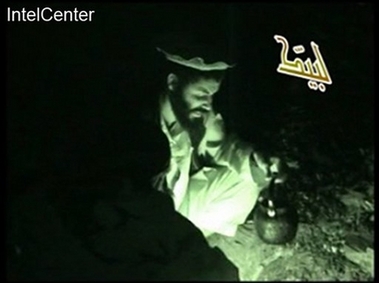US captures senior Al-Qaida operative
(AP)Updated: 2007-04-28 06:05
WASHINGTON - After being secretly held by the CIA for months, an Iraqi who was one of al-Qaida's most senior and experienced operatives has been shipped to the Guantanamo Bay military prison for terror suspects, officials said Friday.
The transfer of al-Iraqi, said to have been an associate of al-Qaida leader Osama bin Laden, makes him the 15th so called "high-value" detainee known to be handed over to military officials at the military facility in Cuba from CIA control.
The arrangement continues to be controversial. People in the secret prisons are subject to harsh interrogation methods that human rights groups say amount to torture. The Bush administration says the methods are legal and the interrogation necessary to protect the US from attack.
The Pentagon said al-Iraqi was born in Mosul, in northern Iraq, in 1961 and served in Iraq's military. Spokesman Bryan Whitman said he was a key al-Qaida paramilitary leader in Afghanistan in the late 1990s, and in 2002-2004 led efforts to attack US forces in Afghanistan with terrorist forces based in Pakistan.
Neither Whitman nor CIA spokesman Paul Gimigliano would say where or when al-Iraqi was captured or by whom.
A US intelligence official, speaking on condition of anonymity because of the sensitivity of the matter, said the Iraqi man had been captured late last year in an operation that involved many people in more than one country.
CIA Director Michael Hayden wrote in a note to agency employees Friday that the capture was a significant victory and that the CIA played a key role in efforts to locate him, according to an agency official who saw the note.
In Pakistan, Interior Minister Aftab Khan Sherpao described the arrest of al-Iraqi as a welcome development but gave no indication that Pakistan played a role in it.
CIA spokesman Gimigliano called al-Iraqi "a veteran jihadist" and said the capture was good news. He said of al-Qaida and the capture: "It is still an extremely dangerous group. But it is evidence of success in terms of eroding their leadership."
It wasn't until last September that President Bush first acknowledged the CIA use of secret prisons around the world. He said all 14 high-value terrorism suspects that the CIA had been holding — including a mastermind of the Sept. 11, 2001, terrorist attacks — had been transferred to military custody at Guantanamo Bay for trials.
Officials said Friday that al-Iraqi was captured well after that, but John Sifton of Human Rights Watch in New York said he was skeptical.
After Bush's announcement, "we thought there were others who remained in CIA custody or, if they weren't, they were temporarily being held in some sort of proxy custody by someone else" Sifton said.
His group says it has a list of 16 additional people who at one time had been in CIA custody and have never been accounted for.
The CIA has not commented on the list.
Soon after the capture of a key terror suspect in 2002, the CIA decided it should hold high-value captives for extended periods to extract information, using "enhanced interrogation techniques."
Those widely reported practices included openhanded slapping, cold, sleep deprivation and — perhaps most controversially — waterboarding. In that technique, a detainee is made to believe he is drowning.
"The methods used in this program are thoroughly reviewed by our government to ensure that they are fully in accordance with our laws and treaty obligations," Gimigliano said.
Administration officials say the questioning has provided critical intelligence information about terrorist activities that has enabled officials to prevent attacks, including with airplanes, within the United States.
The terror suspect met with al-Qaida members in Iran, Whitman said, adding he did not know when.
Whitman said al-Iraqi was associated with leaders of other extremist groups allied with al-Qaida in Afghanistan and Pakistan, including the Taliban.
The Pentagon said al-Iraqi spent more than 15 years in Afghanistan and at one point was an instructor in an al-Qaida training camp there. Before the terrorist attacks of Sept. 11, 2001, he was a member of al-Qaida's ruling Shura Council, a now-defunct 10-person advisory body to bin Laden, the Pentagon said.
In August 2005, al-Iraqi appeared in a purported al-Qaida-made video that showed militants in Afghanistan preparing to attack US troops and showing off what they said was a US military laptop.
Al-Iraqi, speaking in the video with a scarf hiding his face, said the US-led wars in Afghanistan and Iraq had created new fronts for recruiting people to the cause of bin Laden and Taliban leader Mullah Omar.
"Now all the world is united behind Mullah Omar and Sheik Osama," he says.
|
||
|
||
|
|

